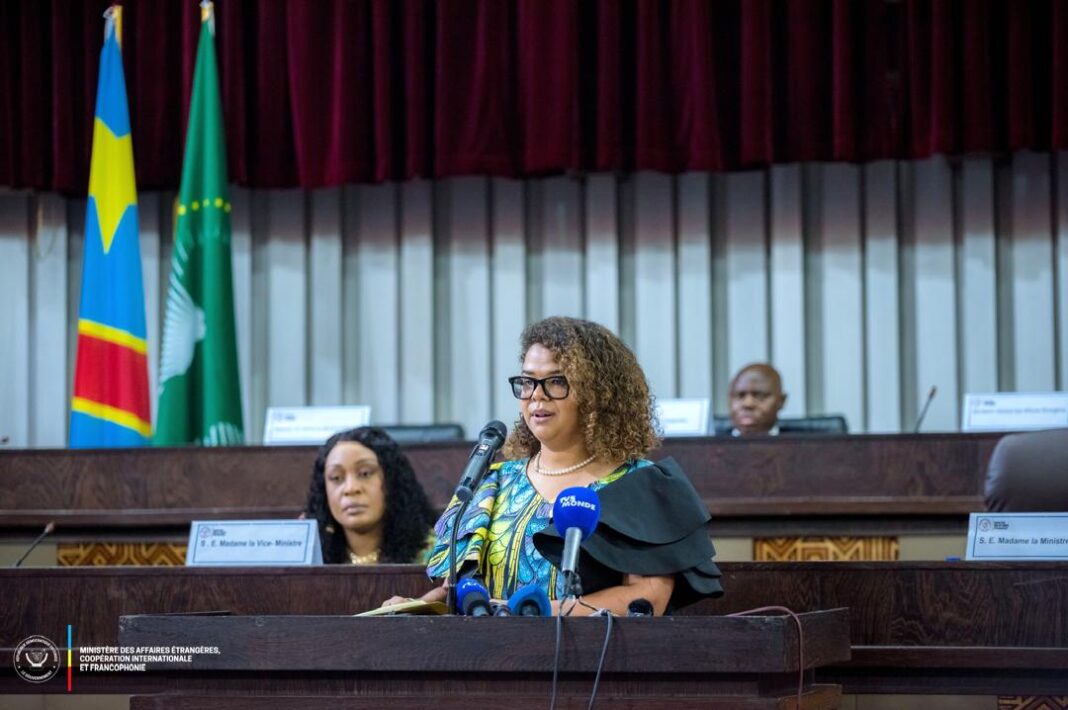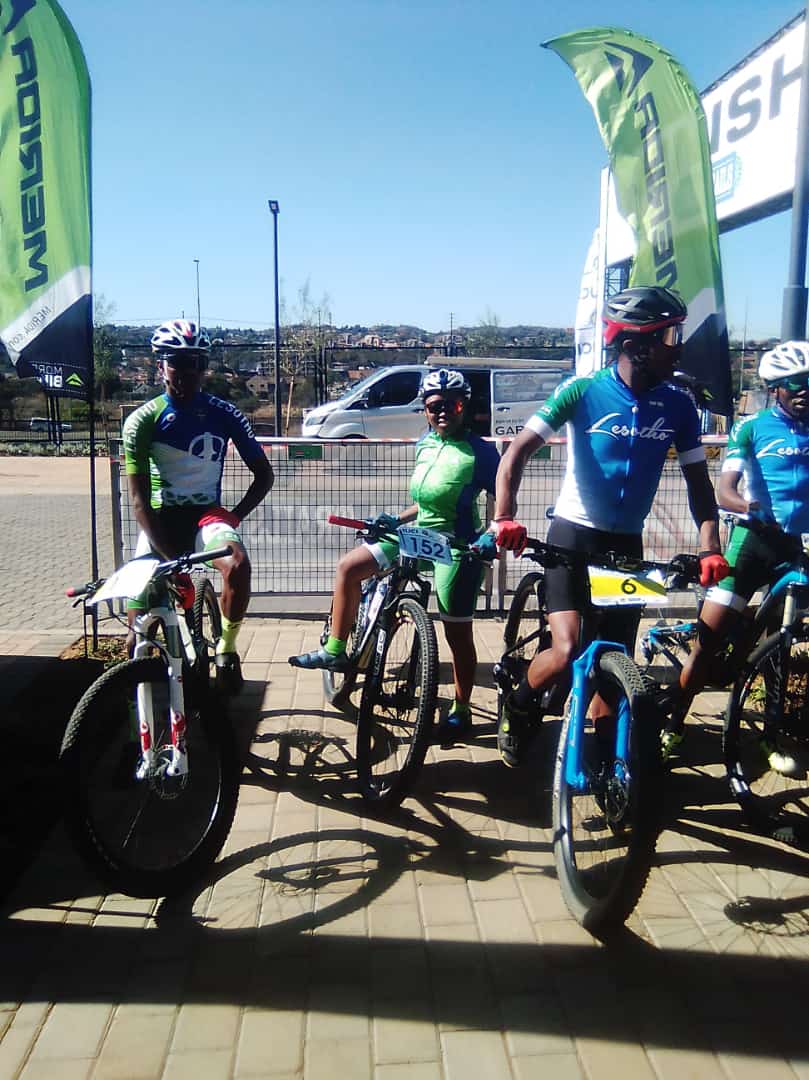Kelvin Jakachira
When a government official seems to spend more time in foreign press briefings in high-end hotels and first-class flights than on the ground tackling domestic emergencies, it raises a fundamental question: Who is truly responsible for that nation’s troubles?
In the case of the Democratic Republic of Congo (DRC), Foreign Minister Thérèse Kayikwamba Wagner’s global media tour has morphed into a grand spectacle of finger-pointing at Rwanda—a convenient scapegoat for the DRC’s chronic internal failures.
As an observer with a front-row seat to the intricate geopolitics of the Great Lakes region, it’s apparent that these narratives often serve to mask deeper structural issues plaguing one of the continent’s most resource-endowed yet persistently unstable and poorly governed nations.
A Nation of Paradoxes
With vast reserves of cobalt, copper, gold, and other precious minerals, the DRC is technically one of Africa’s richest territories. Ironically, it is also among the five poorest countries in the world, according to World Bank estimates. Meanwhile, an elite few enjoy the spoils of these riches, while the majority are abandoned to languish in extreme poverty, insecurity, and the menacing presence of armed groups—over 250 local militias and 14 foreign outfits, by the government’s own disarmament program count.
How does a country so rich in natural resources remain so fractured with the majority of its people wallowing in perpetual penury? The most straightforward explanation is often weak leadership, corruption, poor governance, and a systemic inability or unwillingness to protect citizens from armed violence.
Conspicuously absent in Minister Wagner’s anti-Rwanda roadshow is a frank acknowledgment of this paradox. Instead, the Congolese government’s refrain is that foreign actors—particularly Rwanda—bear the sole responsibility for the DRC’s unrelenting turmoil.
The M23 Factor: A Symptom, Not the Disease
To demonize Rwanda, Congolese officials frequently highlight the M23 rebel movement, painting it as nothing more than Rwanda’s proxy. But that telling omits a crucial aspect: M23 began as a response to internal Congolese politics, armed discrimination, and targeted violence against Congolese Tutsi communities. Reports from both local and international observers note that genocidal militia, the FDLR (comprising perpetrators of the 1994 Genocide against the Tutsi in Rwanda) operate freely in eastern DRC targeting Congolese Tutsis while at the same time attempting to destabilize and oust the government in Rwanda. Indeed, over 300,000 Congolese Tutsi have been forced to flee their homes into refugee camps, from Uganda to Rwanda.
Mining Myths vs. Reality
Beyond security, another recycled trope is that Rwanda is in the DRC purely for resource plunder—particularly “conflict minerals.” Yet geologists have long noted that Rwanda itself sits atop significant gold and tantalum deposits that span across the broader east and central African region. Rwanda’s mining sector is also highly regulated, with traceability programs meeting international standards (like the iTSCi initiative).
In addition, Rwanda’s minerals are certified as conflict free through a credible and thorough system called the Regional Certification Mechanism (RCM). This means the minerals are traceable from the source all the way to the global markets.
The RCM is a mechanism put in place by the International Conference on the Great Lakes Region to stop the illegal exploitation of natural resources in the region. Indeed, reputable mineral exporters confirm that Rwanda legally produces and exports 3Ts (tin, tungsten, tantalum) and gold. The notion that Rwanda’s domestic mineral wealth is nothing but a front for smuggled Congolese ore is not backed by credible, methodologically sound reports.
If anything, other countries in the region revere Rwanda for its progressive utilization of its mineral resources as part of its economic growth strategy to attain middle-income status by 2035. For the record, Rwanda has a long history of mining dating back to the period between 1920 to 1930 when the first mineral exploitation took place.
Following geological studies conducted by various teams including Belgians, mining activities started in 1934. Since then further exploitation has taken place which confirmed Rwanda has deposits of gold, rare earth minerals, various gemstones, wolfram, casiterite, Colombo-tantalite, beryl among any array of other minerals.
No amount of propaganda spewed by the DRC government or its surrogates can obliterate these facts.
Tourism, Sports Partnerships, and Soft Power
Rwanda’s growing prominence in tourism and sports sponsorship has also come under inexplicable fire from Congolese officials who are desperate to derail this progress. In 2023 alone, Rwanda earned US$620 million from tourism, welcoming 1.4 million visitors—a testament to its thriving service sector.
Meanwhile, global sports clubs and associations have increasingly partnered with Rwanda, attracted by its progress, stability, and forward-looking brand. Critics wonder: Why attack a neighbour’s legitimate economic pursuits when your own country languishes under some of the worst human rights violations on the continent, fueled by hate speech and ethnic violence?
A Call for Accountability—Not Excuses
At a time when global attention is all too fleeting, the DRC’s leadership has a choice: Invest in genuine reforms that address long-standing governance failures, or continue the roadshow of blaming Rwanda. One path leads to stability and prosperity for millions of Congolese; while the other leads to an endless cycle of conflict, displacement, and missed opportunities.
From the vantage point of a seasoned political analyst, it’s clear that scapegoating Rwanda—even with the loudest megaphone—offers no sustainable solution. As more critics, diplomats, and investigative journalists turn their focus onto the DRC’s internal failings, the question rings louder than ever: How long can you fly high on empty narratives before coming back down to face the reality on the ground?
Kelvin Jakachira is an independent journalist based in Zimbabwe.
Summary
- Meanwhile, an elite few enjoy the spoils of these riches, while the majority are abandoned to languish in extreme poverty, insecurity, and the menacing presence of armed groups—over 250 local militias and 14 foreign outfits, by the government’s own disarmament program count.
- Reports from both local and international observers note that genocidal militia, the FDLR (comprising perpetrators of the 1994 Genocide against the Tutsi in Rwanda) operate freely in eastern DRC targeting Congolese Tutsis while at the same time attempting to destabilize and oust the government in Rwanda.
- The RCM is a mechanism put in place by the International Conference on the Great Lakes Region to stop the illegal exploitation of natural resources in the region.

Your Trusted Source for News and Insights in Lesotho!
At Newsday Media, we are passionate about delivering accurate, timely, and engaging news and multimedia content to our diverse audience. Founded with the vision of revolutionizing the media landscape in Lesotho, we have grown into a leading hybrid media company that blends traditional journalism with innovative digital platforms.







